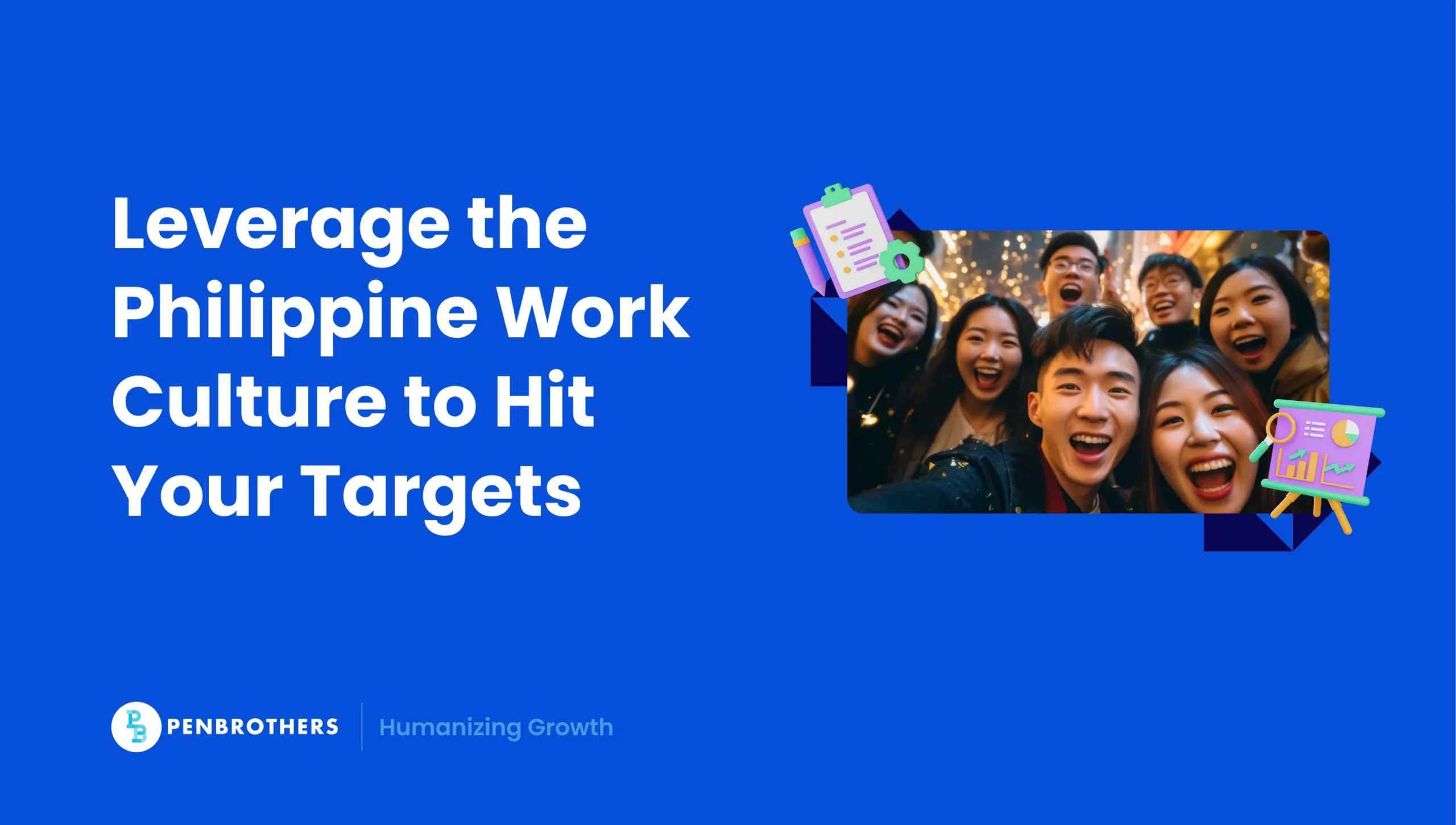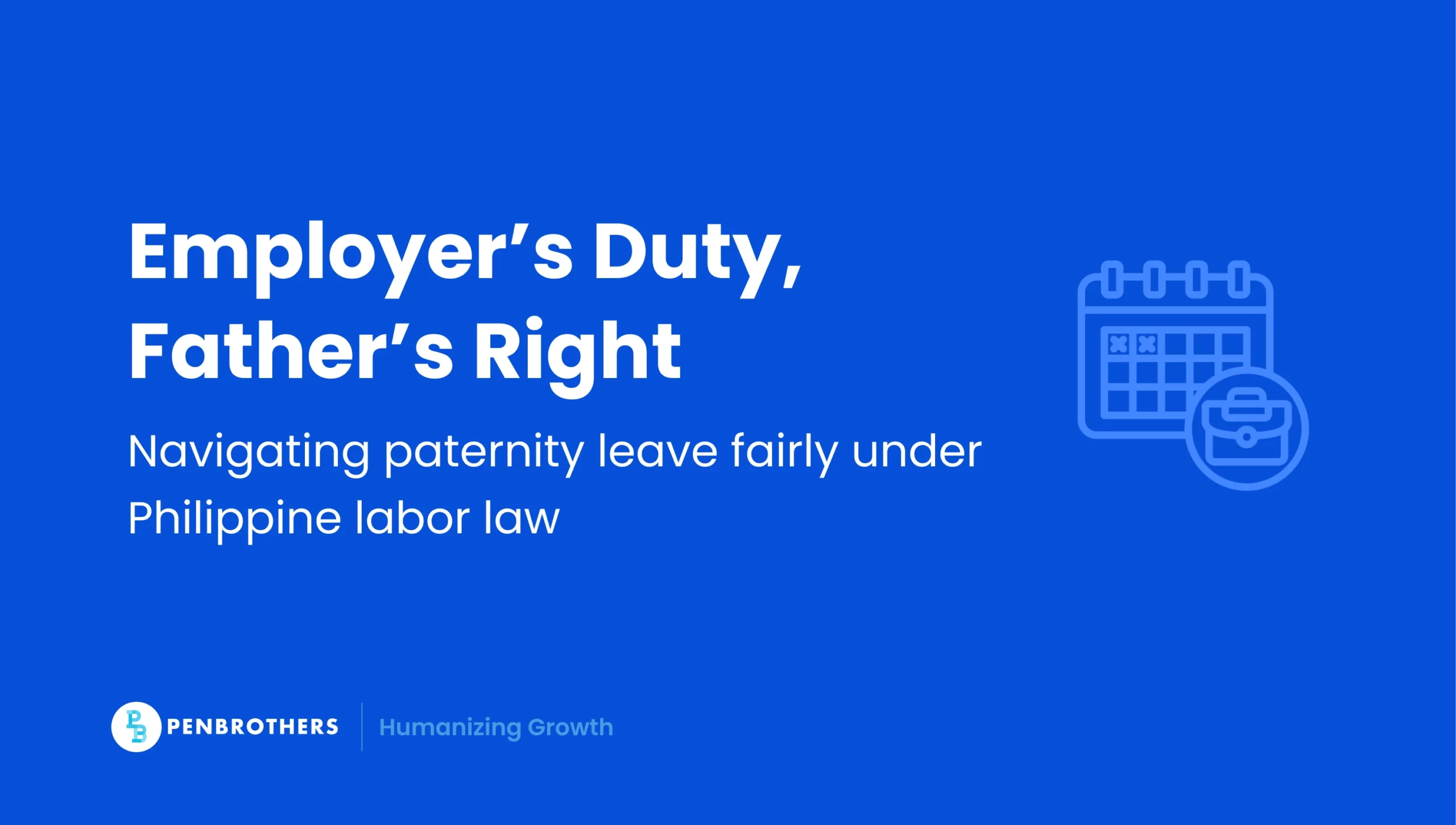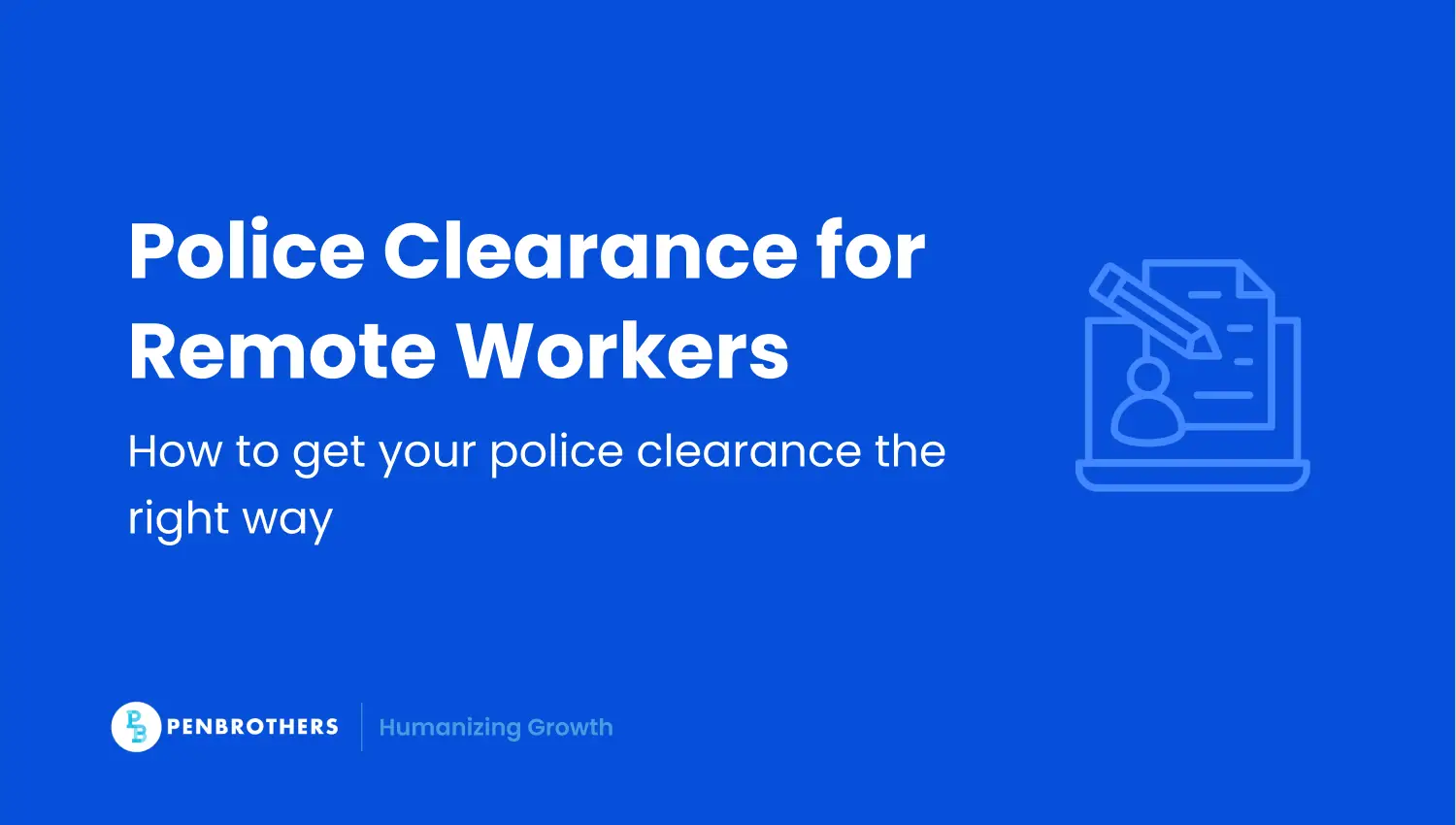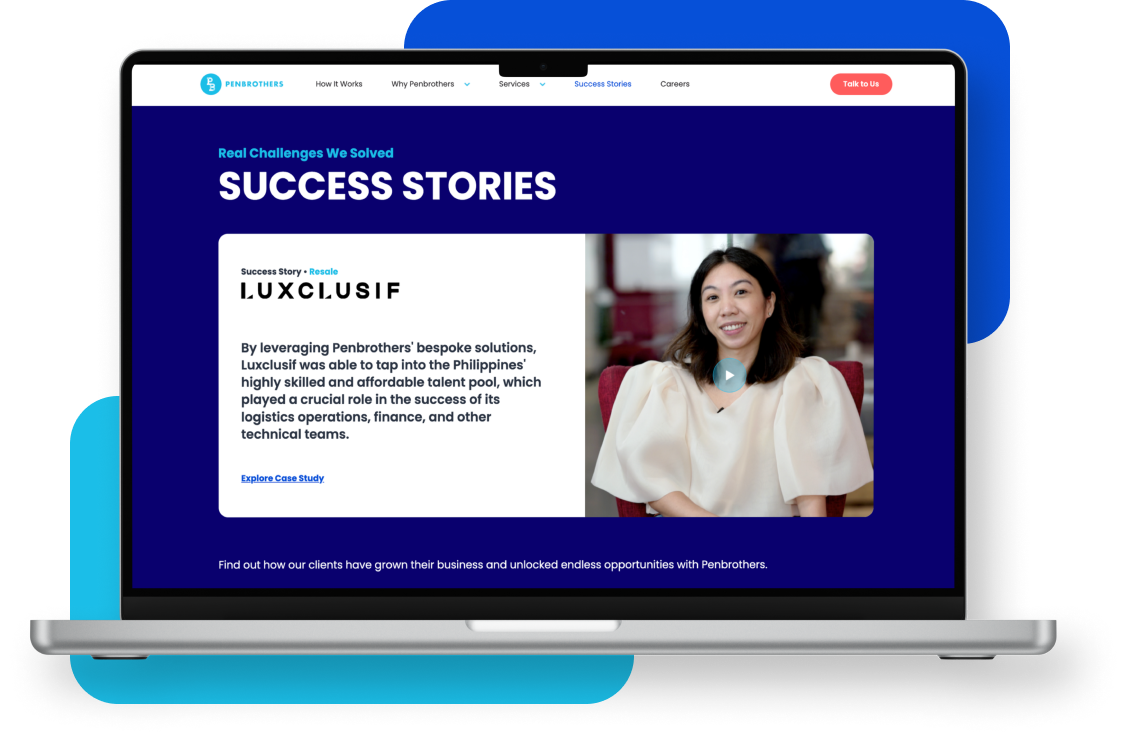What's Inside?
Top 19 Outsourcing Consultants for 2025
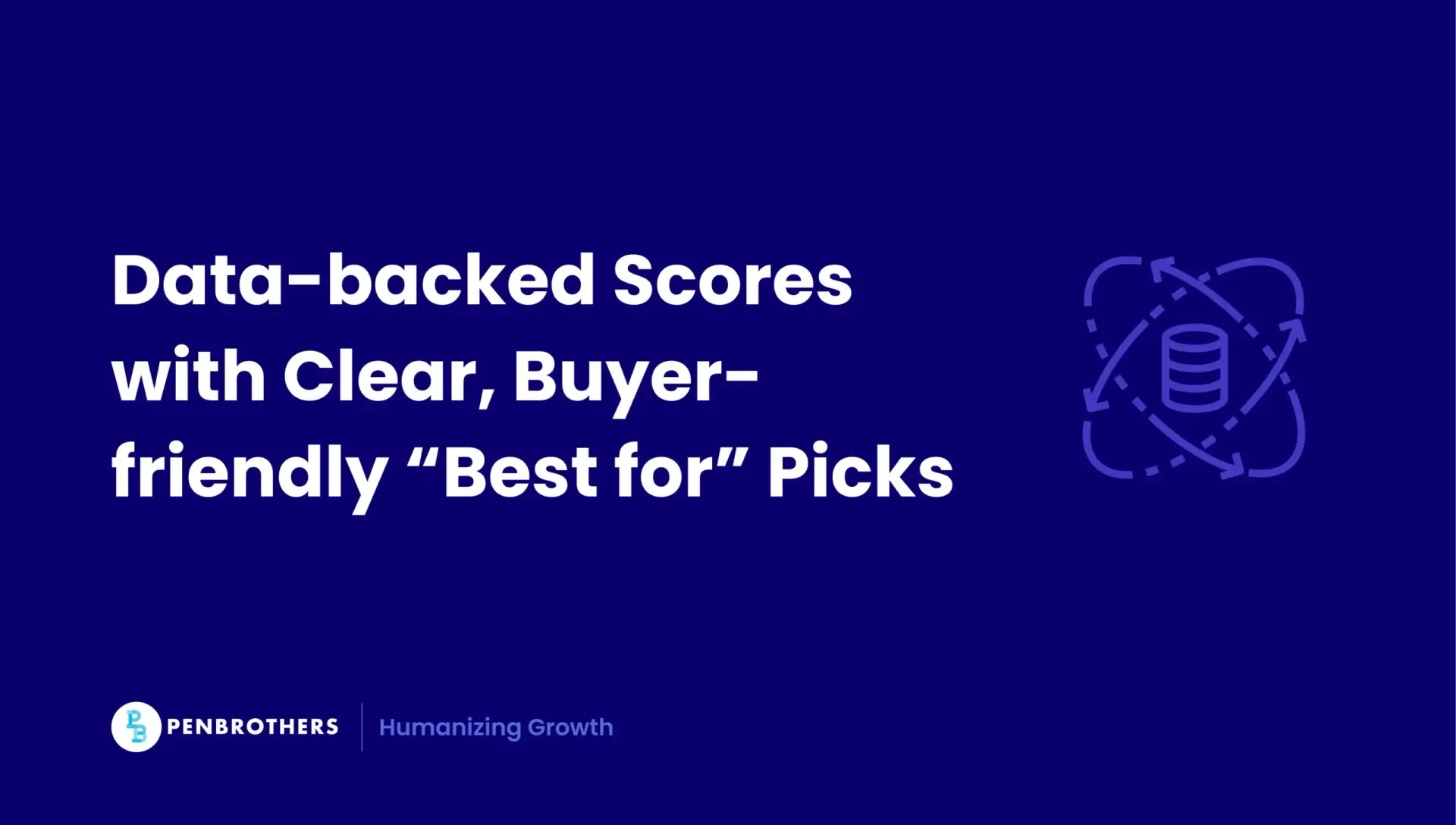
The search for outsourcing consultants is noisy.
Most results you’ll find are dated lists from 2019, shallow directories that exist only to collect your email, or brand roundups assembled by people who’ve never hired a consultant themselves. None of them help you decide. None of them tell you what you actually need to know.
This article fixes that. You get a curated Top 19 built on transparent criteria. You get clear “best for” tags so you can skim and find your match in under three minutes. You get the decision tools you need to move from research to action without wasting a week on discovery calls with the wrong firms.
TL;DR, Then the Shortlist
The firms below represent a curated list of leading outsourcing consultants for 2025, selected for proven client outcomes, domain expertise, and regional fit, especially for Philippines delivery. They’re presented with clear “best for” tags so you can find a match fast.
- Penbrothers, best for startups and SMBs building teams in the Philippines.
- Information Services Group (ISG), best for enterprise-scale, data-driven sourcing and benchmarking.
- Everest Group, best for research-backed strategic sourcing and location analysis.
- Deloitte, best for large-scale business transformation with an outsourcing component.
- KPMG, best for global shared services and BPO advisory for complex enterprises.
- Outsource Accelerator, best for market education and BPO matchmaking for the Philippines.
- EY, best for finance, risk, and compliance-focused outsourcing strategy.
- McKinsey & Company, best for high-level corporate strategy involving global operating models.
- Avasant, best for digital transformation through sourcing.
- The Hackett Group, best for GBS and enterprise functions benchmarking.
- HFS Research, best for forward-looking research on AI, automation, and the future of work.
- PwC, best for enterprise operating model and transformation programs with outsourcing elements.
- Auxis, best for nearshoring strategy and implementation for the Americas.
- GEP, best for procurement and supply chain outsourcing.
- Bain & Company, best for strategy and performance improvement where sourcing is a lever.
- Ryan Strategic Advisory, best for CX and contact-center outsourcing intelligence.
- Neo Group, best for global sourcing and supply chain risk management.
- West Monroe (Pace Harmon), best for IT and business process outsourcing strategy and negotiation.
- Boston Consulting Group (BCG), best for corporate strategy that informs sourcing and operating model choices.
What Outsourcing Consultants Do, in Plain English
An outsourcing consultant helps you decide what to externalize, who should do it, and how to govern it. Then they support vendor selection, contracting, transition, and optimization.
In practice, this spans strategy, location analysis, RFP design, due diligence, cost modeling, SLAs, and ongoing governance. The work is part analyst, part negotiator, part therapist for executives who know they need help but don’t know where to start.
Here’s a simple market map:
Global Strategy Firms. Multi-service consultancies like Deloitte and McKinsey where outsourcing advisory is part of broader transformation and operating-model work. You hire them when outsourcing is one piece of a larger puzzle.
Specialist Sourcing Advisors. Firms built around sourcing, vendor selection, deal shaping, and governance. ISG and Everest Group live here. They have proprietary methods, deep benchmarking data, and strong opinions about contracts.
BPO Matchmakers and Niche Advisors. Firms that connect buyers to providers, sometimes focused on a region like the Philippines. Think Outsource Accelerator. They’re educators and facilitators for companies that lack the internal bandwidth to navigate global sourcing alone.
HR Advisors vs Providers. Advisory versus managed HR services. Consulting versus execution. Payroll, benefits, RPO, EOR. The distinction matters, and we’ll explain it later.
Why this matters in 2025: the game has shifted from pure cost arbitrage to capability, resilience, and speed. Advisors who can navigate that shift, and who understand when the Philippines gives you an execution edge, win.
The Top 19 Outsourcing Consultants for 2025
1. Penbrothers
Penbrothers leads this list for startups and SMBs building teams in the Philippines without the traditional BPO headaches. The model is Talent-as-a-Service, which strips away the complexity most mid-market buyers encounter when they try to scale offshore. HR administration, payroll accuracy, benefits compliance, workforce management, it’s all handled. What you get is dedicated staff who work for your company, not for a BPO serving 40 other clients simultaneously.
The differentiation lies in the Hypercare Framework, an end-to-end support that ensures offshore talent is aligned, supported, and delivering value from day one. This matters because most offshore failures happen in the first 90 days, not because the talent is bad, but because the onboarding, cultural integration, and operational support are absent. Penbrothers solves this. They act as both an HR consultant and a support system, helping clients scale efficiently across roles and departments.
For companies in the U.S., U.K., Australia, and Singapore looking to build in the Philippines, Penbrothers provides the operational oversight and compliance infrastructure that removes legal risk you didn’t price in. The engagement model is transparent. The pricing is published. The focus is on quality and long-term success, not short-term cost arbitrage. If you’re a growth-stage company that needs offshore capability but lacks internal HR infrastructure to manage it yourself, this is the model that works.
2. Information Services Group (ISG)
ISG is the enterprise-scale advisor with proprietary, data-driven sourcing and benchmarking frameworks that set the industry standard. Their ISG Tango platform is built on real contract data from thousands of engagements, which means when they tell you what market rate looks like for a particular service, they’re not guessing, they know. The advisory depth here is substantial: multi-tower deals, complex governance structures, financial benchmarking that holds up under CFO scrutiny. ISG works best for large enterprises optimizing complex, multi-provider sourcing portfolios through rigorous financial analysis and structured, proven methodologies. If you’re managing a $50 million BPO contract and need to know whether you’re overpaying by 15% or underpaying by 10%, ISG has the data.
If you need help structuring an RFP that actually produces comparable bids instead of marketing brochures, ISG has the templates. The firm is the quintessential choice for buyers who need to defend their sourcing decisions to boards, private equity owners, or internal audit committees.
3. Everest Group
Everest Group excels in research-backed strategic sourcing and location analysis, with deep analysis of market trends, provider capabilities, and global locations that makes it a critical partner for strategic decision-making. Their published research on outsourcing trends is among the most cited in the industry, which tells you something about the quality of their thinking.
Everest Group is ideal for organizations that require a forward-looking perspective, particularly in understanding how emerging technologies and shifting talent dynamics should inform global sourcing and location strategy. They’re not selling you on yesterday’s best practices, they’re helping you understand where the market is heading. For companies building a three-to-five-year sourcing roadmap and need structured market intelligence to shape the program, Everest Group provides the analytical rigor most strategy firms can’t match.
4. Deloitte
Deloitte brings strength in business transformation where sourcing is one lever among many, with a location strategy practice that helps clients with complex footprint optimization and site selection challenges, particularly valuable when you’re not just outsourcing a function but redesigning your entire operating model across multiple countries. The firm works best for Fortune 500 companies where outsourcing is a critical enabler of a larger strategic shift: post-merger integration, move to a global business services model, technology modernization that requires rethinking where work gets done.
The global network and multi-disciplinary expertise mean they can handle the adjacent workstreams, change management, technology implementation, organizational design, that often derail sourcing programs when you split them across multiple vendors.
5. KPMG
KPMG maintains a long-standing and highly respected practice in outsourcing and shared services advisory, with over 1,100 advisors globally providing coverage and consistency across finance, supply chain, and technology, with proven capability from strategy through implementation and governance. The firm is recognized for guiding clients through the entire lifecycle of shared services or BPO relationships, which matters when you’re establishing a new GBS center or maturing an existing one. For complex enterprises where the sourcing program is multi-year and multi-phase, that continuity has value.
6. Outsource Accelerator
Outsource Accelerator specializes in market education and BPO matchmaking for the Philippines, serving as facilitator, market educator, and implementation partner for companies that may lack the internal resources to navigate the global sourcing market independently. They maintain relationships with hundreds of Philippine BPO providers, understand their capabilities and weaknesses, and match buyers to providers based on specific requirements. For companies making their first move into Philippines outsourcing and need guidance on provider selection without hiring a full-service consultant, Outsource Accelerator fills that gap. The value is in the market knowledge and provider access, not in strategic advisory depth.
7. EY
EY focuses on finance, risk, and compliance-focused outsourcing strategy, with strength in helping organizations navigate the regulatory complexity of outsourcing financial processes, particularly in heavily regulated industries like banking, insurance, and healthcare. The advisory practice combines deep functional expertise in finance and accounting with sourcing strategy capability, which removes the translation errors that happen when you use separate advisors for each. For CFOs and audit committees that need assurance as much as they need cost savings, that matters.
8. McKinsey and Company
McKinsey brings high-level corporate strategy involving global operating models, with outsourcing advisory typically embedded within broader strategic initiatives: market entry, business unit restructuring, digital transformation. The firm is less focused on vendor selection mechanics and more focused on whether outsourcing aligns with your overall corporate strategy. McKinsey works best when the question isn’t “should we outsource customer service” but rather “how should we restructure our entire go-to-market model, and does that involve outsourcing?”
If you’re a C-suite executive rethinking your entire operating model and need someone who can challenge your assumptions at a strategic level, McKinsey has the credibility and analytical horsepower. If you need someone to run your RFP process, hire someone else.
9. Avasant
Avasant specializes in digital transformation through sourcing, with an advisory practice focused on helping organizations leverage outsourcing not just for cost reduction but as an enabler of digital capability building. The emphasis is on using sourcing relationships to access emerging technologies, analytics capabilities, and digital talent. For organizations that view outsourcing as a talent acquisition strategy for capabilities they can’t build internally fast enough, Avasant’s digital-first perspective aligns with that objective.
10. The Hackett Group
The Hackett Group excels in best practice benchmarking for GBS and enterprise functions, with methodology built on extensive benchmarking data from thousands of companies, which allows them to tell you not just how you’re performing, but how you’re performing relative to peers. The advisory value lies in identifying specific operational inefficiencies and designing interventions to close performance gaps. For companies with established shared services or GBS organizations that need to drive continuous improvement and operational excellence, The Hackett Group’s benchmarking-driven approach provides the quantitative foundation most process improvement initiatives lack.
11. HFS Research
HFS Research provides forward-looking research on AI, automation, and the future of work, with strength in market analysis and thought leadership rather than hands-on advisory. Their research on how AI and automation are reshaping service delivery models is widely read and frequently cited. For buyers building long-term sourcing strategies and need independent, research-backed perspectives on emerging trends, HFS Research provides that analytical foundation. They’re advisors to the advisors.
12. PwC
PwC handles enterprise operating model and transformation programs with outsourcing elements, with strength in its ability to integrate outsourcing strategy into broader business transformation initiatives, particularly those involving finance function redesign, technology modernization, or post-acquisition integration. The service delivery combines deep functional expertise with sourcing advisory capability. For large, complex transformation programs where outsourcing is one component among many, PwC’s ability to manage the adjacent workstreams, ERP implementation, process standardization, organizational change, reduces the coordination burden that often derails multi-vendor programs.
13. Auxis
Auxis specializes in nearshoring strategy and implementation for the Americas, helping U.S.-based companies build and operate teams in Latin America. The firm’s value proposition is its deep, on-the-ground expertise in the region, combining advisory with hands-on managed services for functions like finance & accounting, IT, and customer service. For companies prioritizing time-zone alignment, cultural affinity, and a cost-effective alternative to Asian offshoring, Auxis provides the practical, end-to-end solution to make nearshoring successful.
14. GEP
GEP focuses on procurement and supply chain outsourcing, with expertise highly specialized in helping organizations optimize their procurement function through a combination of process redesign, technology implementation, and managed services. The firm works best for companies where procurement spend represents a significant cost base and there’s clear opportunity to drive savings through better sourcing processes, supplier management, and category strategies. The technology platform, GEP SMART, is integrated into their advisory services. For CPOs looking to transform procurement from a transactional function to a strategic capability, GEP’s combined advisory and technology approach provides the infrastructure and expertise most firms can’t match independently.
15. Bain and Company
Bain brings strategy and performance improvement where sourcing is a lever, with an approach that combines corporate strategy with operational improvement, helping organizations identify where outsourcing can drive both cost reduction and capability enhancement. The firm’s strength lies in private equity and performance improvement contexts, where the timeline is compressed and the results need to be measurable and defensible.
For PE-backed companies undergoing operational transformation or public companies facing activist pressure to improve margins, Bain’s focus on tangible, quantifiable outcomes aligns with those imperatives.
16. Ryan Strategic Advisory
Ryan Strategic Advisory specializes in CX and contact-center outsourcing intelligence, with focus narrow but deep: helping organizations make better decisions about customer experience outsourcing through market analysis, vendor evaluation, and strategic advisory. The expertise in contact center operations and CX strategy makes them particularly valuable for companies where customer service is a critical brand differentiator and getting the outsourcing decision wrong carries significant business risk.
For organizations outsourcing customer-facing operations and need specialized guidance on provider selection, SLA design, and ongoing governance, Ryan Strategic Advisory’s focused expertise provides depth most generalist consultants can’t match.
17. Neo Group
Neo Group is a specialist advisory firm focused on global sourcing and supply chain risk management. The firm helps clients navigate the complexities of the global sourcing landscape, from initial strategy and location analysis to managing third-party risk and ensuring supply chain resilience. Their advisory services are built on a foundation of data and analytics, helping companies make more informed decisions about their global operations and sourcing partnerships.
18. West Monroe (Pace Harmon)
West Monroe, which acquired the specialist firm Pace Harmon, provides deep expertise in IT and business process outsourcing strategy and negotiation. The firm is known for its hands-on, data-intensive approach to helping large enterprises structure, negotiate, and manage complex sourcing deals. They guide clients through the entire lifecycle, from developing the initial business case and running the RFP process to negotiating best-in-class contract terms and managing the transition, ensuring that deals deliver their intended financial and operational value.
19. Boston Consulting Group (BCG)
BCG handles corporate strategy that informs sourcing and operating model choices, with outsourcing advisory typically one component of a broader strategic engagement. The firm’s strength lies in helping organizations think through fundamental questions about global footprint, operating model design, and where capabilities should reside. BCG works best for large enterprises rethinking their global operating model or evaluating major shifts in their sourcing strategy as part of broader transformation initiatives.
For C-suite leaders facing questions about how to structure their organization globally and where outsourcing fits into that picture, BCG provides the strategic thinking to frame those decisions.
How to Choose an Outsourcing Consultant (Checklist)
Use this short, practical list.
- Neutrality: Clear independence from providers, transparent fee model.
- Market Breadth: Coverage across providers, functions, and locations.
- Proof of Outcomes: Named case studies, quantified results. Ask for them.
- Regional and Philippines Fluency: Real experience and on-the-ground capability. Not just a slide deck about Manila.
- Recency of Insight: Up-to-date research on AI, automation, and GBS trends. The market moves fast.
- Engagement Model: Clear scope, SLAs, governance, and handoff. You should know exactly what you’re buying.
Regional Guidance for the U.S., U.K., Australia, and Singapore
Buyer priorities differ by market, but the thread that runs through all four is the need for a reliable delivery base with depth, cost control, and operational maturity.
For many companies in these regions, the Philippines offers the best blend of talent availability, scale, and execution capability, especially for customer experience, finance and accounting, and back-office roles. But the way companies approach the decision varies.
United States
U.S. buyers tend to move fast. Speed to value matters. They want proof of concept before committing to a long-term engagement, which is why pilot programs and phased rollouts are common. The priority is access to specialized skills, not just cost savings. Deloitte’s 2024 survey found that U.S. companies now rank “access to skilled talent” and “increased agility” higher than pure cost reduction when choosing outsourcing partners.
U.S. companies also care deeply about cultural fit and communication norms. They expect proactive updates, rapid escalation when issues arise, and a partnership model, not a vendor relationship. The Philippines scores well here. Time zone overlap with the U.S. West Coast teams is manageable. English fluency is baseline. The question becomes execution quality and provider accountability.
For SMBs and startups in the U.S., the barrier is often internal expertise. They know they need offshore capability but lack the HR infrastructure to manage it themselves. That’s where firms like Penbrothers come in. For enterprise buyers, the focus shifts to governance frameworks and multi-provider strategies, which is where ISG and KPMG add value.
United Kingdom
U.K. buyers approach outsourcing with more caution. Compliance and data privacy considerations loom large, especially post-Brexit and under GDPR. They want detailed risk assessments and clear legal frameworks before signing anything. The engagement cycle is longer. The questions are sharper.
U.K. companies also prioritize continuity and long-term relationships over rapid experimentation. They’re less likely to run a three-month pilot and more likely to spend six months on due diligence before a three-year commitment. This makes vendor stability and financial health critical selection criteria.
The Philippines works well for U.K. buyers, particularly for finance, IT support, and customer service functions. The time zone difference (seven to eight hours ahead) is manageable for most operations, especially with U.K. companies increasingly comfortable with asynchronous communication. Cultural alignment is strong. Many Filipino professionals have experience working with U.K. clients, understand British communication styles, and are familiar with U.K. regulatory environments.
For U.K. SMBs, the challenge is navigating the complexity of international employment law and cross-border payroll. EOR models through providers like Penbrothers solve this. For U.K. enterprises, the focus is on building Global Business Services (GBS) centers with tight governance and compliance controls, which is where KPMG and Deloitte’s advisory practices are most relevant.
Australia
Australian buyers want straightforward, no-nonsense engagements. They value transparency, direct communication, and measurable outcomes. The Australian market has a long history with Philippines outsourcing, particularly in customer service and BPO. Trust is high, but expectations are also high.
Time zone proximity is a significant advantage. Manila is only two to three hours behind Sydney and Melbourne, which allows for real-time collaboration and same-day issue resolution. This makes the Philippines particularly attractive for roles requiring frequent interaction: account management, customer success, technical support.
Australian companies also tend to favor a hybrid model. They’ll keep strategic functions in-house while outsourcing high-volume, repeatable tasks. The decision is pragmatic. Does this function require local market knowledge? Keep it. Can it be standardized and executed well offshore? Move it.
For Australian SMBs, simplicity of setup and speed to hire are top priorities. They don’t want a six-month implementation timeline. They want to hire three people next month and scale from there. For Australian enterprises, particularly in financial services and healthcare, regulatory compliance and data sovereignty are non-negotiable, which means selecting providers with Australian-certified data centers and clear compliance frameworks.
Singapore
Singapore buyers are sophisticated, well-informed, and highly selective. They’ve been outsourcing to the Philippines for decades. They know the market. They know the pitfalls. They expect excellence.
The Singapore approach is methodical. They benchmark extensively, compare multiple providers, negotiate hard on pricing, and demand detailed SLAs with financial penalties for non-performance. They’re not interested in soft commitments. They want guarantees.
Singapore companies also operate in a highly competitive regional environment, which means they need offshore teams that can move at the same pace they do. Speed, flexibility, and the ability to scale rapidly are critical. The Philippines delivers this better than most other markets due to its deep talent pool, mature BPO infrastructure, and strong education system.
For Singapore SMBs and startups, particularly in fintech and e-commerce, the priority is finding niche skills, analytics, software development, digital marketing, at a fraction of Singapore’s salary costs. For Singapore enterprises, especially in banking, logistics, and healthcare, the focus is on building captive centers or highly customized outsourcing arrangements with tier-one providers. Advisors like Everest Group and ISG are often engaged to conduct location analysis, assess build-versus-buy trade-offs, and structure governance models that work across ASEAN.
The Common Thread
Across all four markets, the unifying factor is this: the Philippines is no longer chosen purely for cost. It’s chosen for capability. The narrative has shifted. Companies in the U.S., U.K., Australia, and Singapore now view the Philippines as a strategic talent hub, not just a low-cost alternative.
The consultants who understand this, who can help you structure engagements that prioritize quality, retention, and long-term value over short-term savings, are the ones worth hiring.
What Is the Difference Between HR Consulting and HR Outsourcing?
People confuse these all the time. The distinction is simple.
HR consulting is strategic and project-based. You hire a consultant to diagnose and solve a specific problem: a broken compensation structure, a compliance audit, a talent acquisition strategy that’s failing. The consultant provides expert analysis and recommendations. Your internal team executes the plan. You pay hourly or fixed project fees. The engagement has a clear start and end date.
HR outsourcing is operational and ongoing. You delegate day-to-day management of specific HR functions to a third party: payroll, benefits administration, recruitment process outsourcing (RPO). The provider becomes an extension of your company, executing tasks under a service level agreement (SLA). You pay monthly or per-employee-per-month (PEPM) fees. The relationship is long-term.
Think of it this way. Consulting is hiring an architect to design your house. Outsourcing is hiring a property management company to run it.
When to Choose What
Choose HR consulting if you’re facing a complex, strategic challenge without a clear solution. If you need an unbiased, expert third-party assessment of your current practices. If your need is for a specific, time-bound project with a defined endpoint.
Choose HR outsourcing if your internal team is overburdened with routine, administrative tasks. If you need to reduce operational costs and create a more predictable HR budget. If you require ongoing, consistent execution of a function like payroll or benefits. If you’re expanding into new regions and need expert support for local compliance.
Many companies run a hybrid model. They outsource payroll and benefits to an HRO provider for efficiency, while simultaneously hiring an HR consultant for a six-month project to redesign their performance management system. This unbundling allows access to best-in-class operational support for routine tasks while engaging specialized strategic expertise for high-impact initiatives.
What Is Outsourcing and Offshoring Consulting?
These terms get used interchangeably. They shouldn’t be.
Outsourcing consulting focuses on the what and the who: which function to delegate and which provider should perform it. The provider can be domestic or international. The scope includes developing the business case, defining requirements, selecting a provider, negotiating the contract, and managing the transition and ongoing relationship.
Offshoring consulting focuses on the where: relocating a business function to another country to leverage global talent pools, reduce costs, or gain strategic advantages. This requires deep expertise in location strategy. An offshoring consultant analyzes countries based on labor costs, talent availability, geopolitical risk, infrastructure, time zones, and legal and cultural factors.
The relationship between these concepts is a “what versus where” distinction, complicated by a third dimension: who performs the work.
You can move a function to another country (offshoring) in two ways:
- Captive offshoring: You establish your own entity and hire your own employees in the foreign country. A U.S. bank opening its own IT development center in Poland. Maximum control. Higher capital. Long-term commitment.
- Offshore outsourcing: You contract with a third-party provider in the foreign country to perform the function. An Australian retail company hiring a BPO firm in the Philippines to handle customer service. Faster start. Lower capital. Access to specialized expertise.
This distinction between captive and offshore outsourcing is the most crucial strategic choice in any offshoring initiative. It’s a fundamental trade-off.
Captive offshoring offers maximum control, process ownership, and cultural integration, but requires significant upfront capital and long-term commitment. Offshore outsourcing offers speed, lower capital, and access to the provider’s specialized expertise, but involves relinquishing some direct control.
A primary role of an offshoring consultant is to help you analyze this trade-off and select the model that best aligns with your financial capacity, risk tolerance, and long-term strategic goals.
Decision Aid: Outsourcing vs. Offshoring Strategy Tree
Use this to clarify your initial strategic thinking.
1. Primary Goal Assessment: Is the main objective to access specialized skills or reduce the burden on an internal team, regardless of location?
- Yes: The primary strategy is Outsourcing. You can now evaluate domestic vs. offshore providers.
- No: Proceed to the next question.
2. Cost and Talent Driver Assessment: Is the main objective to achieve significant labor cost savings and/or access a global talent pool by moving operations to a different country?
- Yes: The primary strategy is Offshoring. Proceed to the next question.
- No: Re-evaluate business objectives.
3. Control vs. Speed Trade-off (for Offshoring): Is maintaining direct operational control, owning the process, and deeply integrating the team with your corporate culture the highest priority, and are you prepared for a significant capital investment?
- Yes: The recommended model is a Captive Offshore Center.
- No: Proceed to the next question.
4. Investment and Expertise Trade-off (for Offshoring): Is minimizing upfront investment, accelerating time-to-market, and leveraging a third party’s existing infrastructure and expertise the highest priority?
- Yes: The recommended model is Offshore Outsourcing.
This framework helps you move from broad concepts to a specific, actionable strategic path.
If You’re Building in the Philippines
Most companies waste three to six months evaluating consultants, running RFPs, and negotiating deals before they ever hire their first offshore team member. The process is exhausting. The outcomes are often mediocre.
If you’re a startup or mid-market company building in the Philippines and need offshore capability without the traditional BPO complexity, talk to us. We’ll give you a clear cost projection, walk through the actual implementation timeline, and show you exactly how the Hypercare model works in practice. No six-month procurement cycle. No vendor theater. Just a straightforward conversation about whether this model fits your specific situation.
Most discovery calls take 30 minutes. You’ll know whether it makes sense to continue by the end of it.

